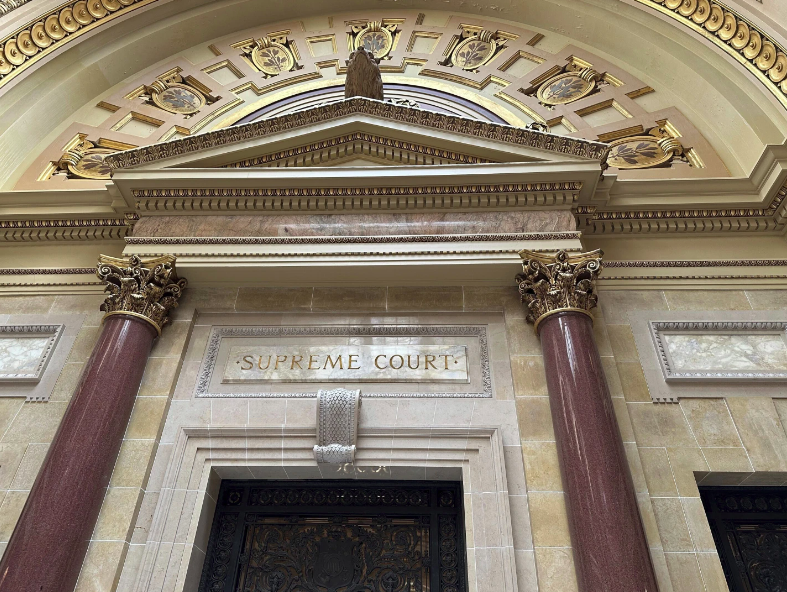Religious freedom has often been referred to as the “first freedom” in America’s constitutional order, but some scholars have argued that liberalism requires that religious freedom not be treated as special or unique in the pantheon of human rights. In this post series, scholars and individuals from all different disciplines and faiths try to define religious freedom and explain why it is a right of particular importance.
By: Hamza Yusuf
Freedom has long been a cherished word in the human lexicon. All human beings love freedom, but if pressed, many people will find it difficult to define. While “freedom” is an abstract noun, its meaning is found in verbs and adjectives as well. We free a prisoner, and we win free prizes. But what is freedom? Why do we value it so highly?
In the West, freedom is a hard won right, fought for in the crucible of rebellion and blood. This type of freedom is generally understood to be political and religious freedom. Americans and Europeans fought several bloody wars to live freely and worship—or not worship—as they chose. Many places in the world, however, are still mired in the slough of political tyranny and religious persecution. This may seem odd for many Americans who take these liberties for granted, but those who risk their lives for the simple right to vote or pray can be found all over the world.
In the West, most people view freedom as an absolute principle and an inalienable right. They do so, however, because most have never deeply pondered the problems of freedom and our exercise of personal liberty. We fail to distinguish between the types of freedom: circumstantial, acquired, and natural, and their implications. We neglect the fact that all freedoms are predicated on freedom of thought, which oddly enough can never be taken away from us, unless we allow it. We are free to think what we want, even in the most repressive societies, where to speak our thoughts is prohibited. If freedom of thought is the foundation of all freedoms, then how much of the contents of our mind are truly free? If we are honest, we must answer: not much. Most of us are victims of our historical circumstances, indoctrination posed as education, propaganda, advertising, and the latest fads. Even our religious beliefs are often merely inherited and not deeply contemplated.
What would a truly free society look like? I don’t mean modern liberal democracies that many assume are free societies. I mean a truly free society where reason rules and people are allowed to think for themselves because their minds are free to do so. If the mind is not free to think without the obstacles of appetite and irascibility, then freedom is merely a chimera or a phantom of no real substance. True freedom, predicated on a mind free to think, takes hard work; it involves not only an outward struggle but, more importantly, an inward one. If such a revolution ever took place on a large scale, our world would take on a very different hue from the one currently clouding it.
Freedom of religion is an extension of freedom of thought: the freedom to worship or believe what one wants. But no man is an island; our nature is to live in aggregates and conform to our societies. Those who attempt to escape the cave have always been persecuted, yet making the horrors of the cave appear pleasurable so that people stop thinking about escaping is not the answer. Rather, the answer involves understanding what it means to think in accordance with what makes us human—our reason and our spirit—and then striving to create societies where we can acquire the tools that enable us to think freely. Religion, paradoxically, thrives in environments of persecution; it often withers in the cornucopia of capitalism and liberal democracies. For those of us who believe, a providential Hand is always present, even in persecution.
While we must struggle against all forms of tyranny over the minds of men, those of us who are believers should realize that the real battles in this world “are not of flesh and blood, but with the principalities of darkness.”
Shaykh Hamza Yusuf is an American-born Muslim scholar and educator and president of Zaytuna College, which he co-founded in 1999 as America’s first accredited Muslim institution of higher learning.
This piece was originally authored on March 31, 2014 for the Religious Freedom Project at Georgetown’s Berkley Center for Religion, Peace, and World Affairs.
THE RFI BLOG

How Soccer Reveals Different Meanings Of ‘Secular’ In France And The US

RFI’s Ismail Royer Meets with Delegation from India

Protecting the Unborn, Mothers, and Medical Ethics: The Stakes of Arkansas’ Amendment

Wisconsin Supreme Court Punishes Catholic Charities for Serving Everyone

Wisconsin Supreme Court Decision Truncates Religion
CORNERSTONE FORUM

Public Bioethics & the Failure of Expressive Individualism

Religious Liberty in American Higher Education

Scotland’s Kate Forbes and the March of Secularism

70 Years of Religious Freedom in Sweden: Prospects and Challenges


